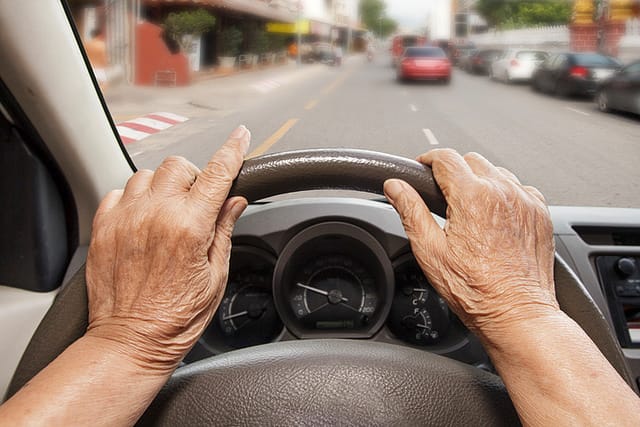
Some older adults reach a point where they must make a difficult decision. They may not really be in the best of health anymore, but they want to continue driving. They have probably been driving for several decades, and they detest the idea of getting rid of their vehicle.
These older adults often feel like if they get rid of their car, they will not be as independent as they were. They will need to take public transportation to get around, such as a train or bus, depending on what’s close to them. They might also need their relatives to drive them around.
If you’re an older adult and you’re trying to keep your vehicle for as long as possible, there are definitely ways you can try to remain as safe as you can. Let’s go over five of them right now.
You Can Check Your Vision Every Year
The Center for Disease Control and Prevention states that about three million people suffer nonfatal car wreck injuries each year. If you’re a senior and want to avoid becoming a statistic, checking your vision every year is one way you can do that.
If you ever check your vision and find you’re no longer able to see as clearly as you once could, that’s probably the time to get rid of your vehicle. If you can keep passing the vision test each year, though, that should reassure you that you can still drive. Your relatives will also be glad that you’re being proactive in staying safe.
If you need glasses or contacts to see clearly, don’t ever try to drive without them. You should use your corrective eyewear, even if you’re only driving a very short distance.
Don’t Drive at Night Anymore
You might decide that you want to keep your car, but you’re going to avoid driving at night from now on. Night driving often presents more dangers than day driving. You can’t always see what’s around you as well, even if you use your headlights.
If you restrict your driving to daylight hours, you’re less likely to cause a car accident. Other vehicles can see you better, and you can see them better as well.
You’re also more likely to see a jogger or a cyclist and stop in time. You will have a much better chance of stopping if an animal or a child runs into the road if it’s daylight.
Don’t Take Long Car Trips
You might also restrict your driving to short distances. You might drive around your neighborhood, taking your vehicle to places like the grocery store or the doctor’s office.
You can fly across the country to visit relatives rather than driving. This way, you don’t have to worry about anything distracting you on a long car excursion or getting fatigued in the middle of a multiple-hour car trip.
Don’t Ever Get Behind the Wheel While Intoxicated
Some older adults feel like they have been driving for so many years, and they’re so good at it, that they can get away with driving after consuming some alcohol. You might not feel like you are over the legal limit, and you’re probably okay to drive home from a dinner party or bar where you’ve had a few adult beverages.
That’s not a safe thing to do, though, at any age. You might have a ton of driving experience to draw on, but that doesn’t mean it’s okay for you to risk anyone else’s life.
You should also be careful about driving after you’ve taken various medications. There are some high blood pressure meds, pain meds, etc., that can affect your driving ability.
Don’t Drive in Bad Weather
You can also avoid driving if it’s raining heavily, snowing, hailing, and so forth. If you restrict your driving to when the weather is nice, that’s much safer than braving a downpour.
If you do need to go somewhere urgently and the weather isn’t cooperating, you can always call for an Uber or a taxi service. You can also call on your relatives to help you if they live near enough to you. They will probably be glad to take you to where you need to go, rather than you driving yourself if your reflexes are not as great as they used to be.
If you follow these rules, you should be able to keep your license for quite some time, even as you reach your life’s later stages.